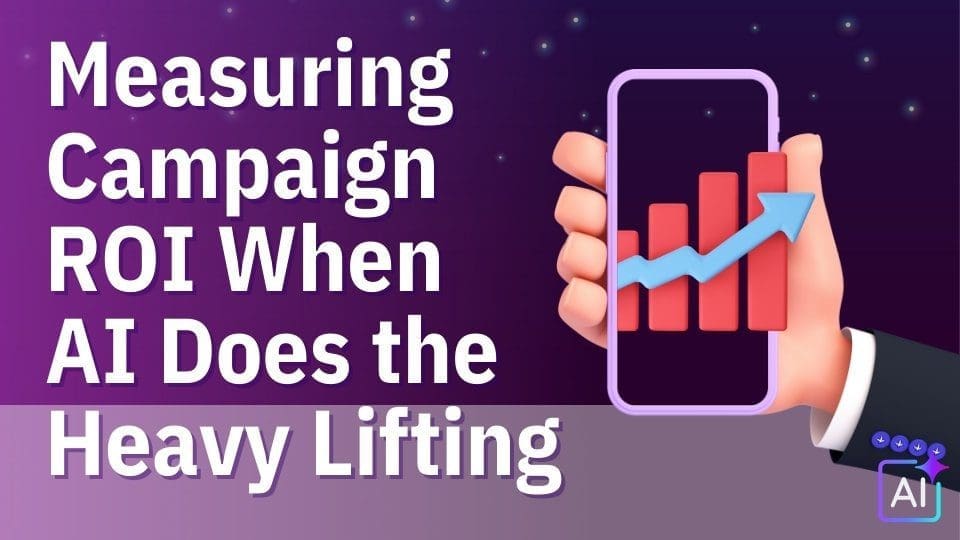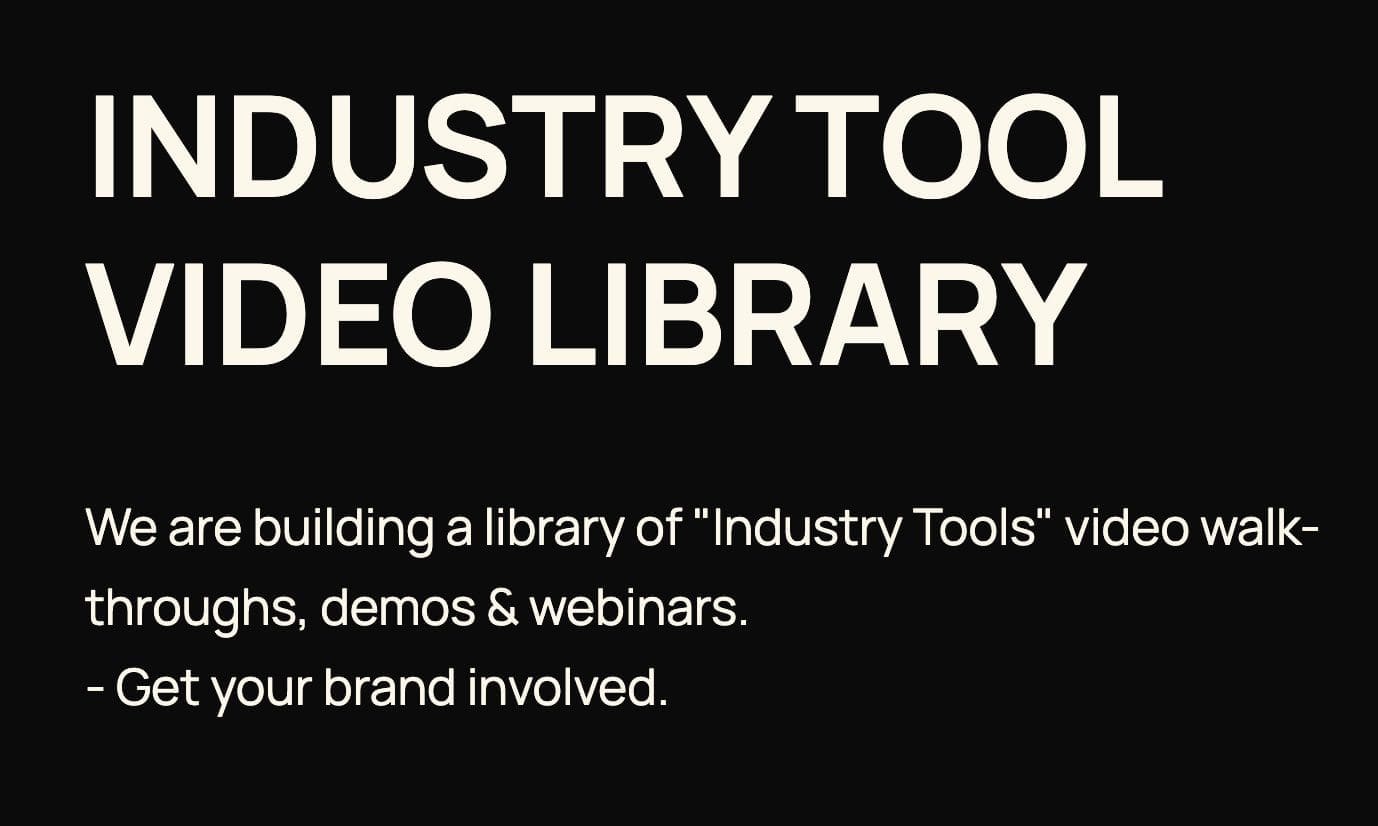AI Learning Centres:
- AI – Learn The Basics
- Get The Most From ChatGPT
- Branding in The Age of AI
- AI for Client Experience
- AI For Prospecting
- AI For Marketing
- AI For Listings & Ads
- Team Adoption of AI
- AI For PM
- AIO & Generative Search
- AI For Operations & Efficiency
- AI For Market Research & Analysis
- AI Ethics, Privacy & Compliance in Real Estate
Digital Marketing & Social Media Learning Centres:
Guides & Downloads

Measuring Campaign ROI When AI Does the Heavy Lifting
Why ROI Still Matters When AI Runs the Show
Even with smart tools doing the heavy lifting, automatically choosing audiences, tweaking budgets, and writing ads you still need to know if those dollars are coming back with friends.
Return on Investment (ROI) tells you whether a campaign is a money-maker or a money-taker.
What “ROI” Looks Like in an AI-Powered World
Classic formula, modern data: ROI = (Gain − Cost) ÷ Cost.
AI adds speed: Numbers update in near-real time, so you can pivot before budget disappears.
AI adds depth: Systems can break results down by suburb, property type, or even stage in the buying journey—without extra spreadsheets.
Metrics That Matter for Real Estate Campaigns
Cost per Lead (CPL): Money spent ÷ new inquiries.
Cost per Inspection Booking: Great for measuring listing ads.
Lead-to-Listing Conversion Rate: How many inquiries become signed agency agreements.
Average Commission per Sale: Needed for dollar-value ROI.
Lifetime Value (LTV): For landlords or repeat sellers.
Incremental Uplift: Extra leads or sales triggered by AI optimisation compared with a manual baseline.
Build a Tracking Foundation Before You Launch
Link Your CRM and Ad Accounts
Make sure every lead flows straight into one database with source tags.
Use UTM Tags on Every Link
Tools like Google’s Campaign URL Builder make this click-easy.
Turn On Offline Conversion Imports
Send signed listings and settled sales back to Google Ads, Meta, or your AI platform so the system learns what “good” looks like.
Keep Data Clean
Double-check spelling of street names, remove duplicates, and fill missing phone numbers—the AI can’t fix messy inputs on its own.
Choosing the Right Attribution Model
| Model | When to Use It | Simple Example |
|---|---|---|
| First Touch | Campaigns aimed at brand awareness | Buyer sees a suburb-profile video first |
| Last Touch | Short decision cycles | Investor clicks a retargeting ad, then calls |
| Multi-Touch / Data-Driven | Longer journeys and larger budgets | Seller sees blog, email, and Google search ad before listing |
AI platforms often default to data-driven attribution, using machine learning to decide how much credit each step deserves.
How AI Improves Measurement
Predictive Analytics: Flags which new leads resemble past sellers.
Dynamic Attribution: Adjusts credit as fresh data rolls in—no manual model swapping.
Anomaly Detection: Alerts you if CPL suddenly jumps after a long weekend or interest-rate news.
Step-by-Step: Calculating Campaign ROI
Set One Clear Goal (e.g., 10 new listings this quarter).
Add Up Total Spend (ad budget + AI tool fees + creative costs).
Count the Wins (signed agency agreements or settled sales).
Work Out Gross Gain (commission earned).
Plug Numbers Into the Formula
Example: $50 000 gain, $10 000 cost → ROI = ($50 000 − $10 000) ÷ $10 000 = 4, or 400 %.
Compare to Baseline
If last quarter’s manual campaign returned 250 %, your AI stack added 150 % more value.
Handy Tools to Make Life Easier
Google Analytics 4 – Free. Tracks website actions and uses AI to predict purchase probability.
Meta Advantage+ Reports – Shows which creative, audience, or placement generated the cheapest inquiries.
Performance Max Insights – Google Ads feature that reveals search terms and audience signals chosen by the algorithm.
CRM Dashboards with AI Scoring – CRM Platforms can rank leads automatically.
Call-Tracking Services – Assign unique phone numbers to ads so offline calls feed conversion data back into the platform.
Reading the Results and Taking Action
Double Down on Winners: Shift budget toward channels with ROI above target.
Fix Weak Links: If CPL is low but lead-to-listing rate is poor, review your qualification scripts.
Test One Variable at a Time: Let the AI experiment with headlines this week, images next week.
Schedule Regular Reviews: Weekly for active campaigns, monthly for always-on ads.
Common Pitfalls to Avoid
Ignoring Setup Costs: Include video production or photographer fees in your “Cost” line.
Counting Every Click as a Lead: Only track genuine inquiries—form fills, calls, inspection bookings.
Forgetting Offline Deals: Past clients who saw your ad and rang the office still belong in ROI maths.
Letting AI Run Untouched: Even the smartest system drifts; keep an eye on creative fatigue and data accuracy.
Quick ROI Checklist
CRM connected to ad accounts
UTM tags on all links
Offline conversions imported weekly
One attribution model chosen
Budget and gain numbers updated in real time
Monthly review meeting booked
AI can crunch numbers faster than any assistant, but it still needs clear goals, tidy data, and your strategic brain.
Track the right metrics, run regular check-ins, and you’ll know exactly when your marketing spend is paying its own way and when to let the robots spend even more.
Author – Ken Hobson.






